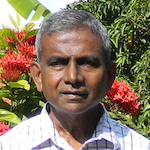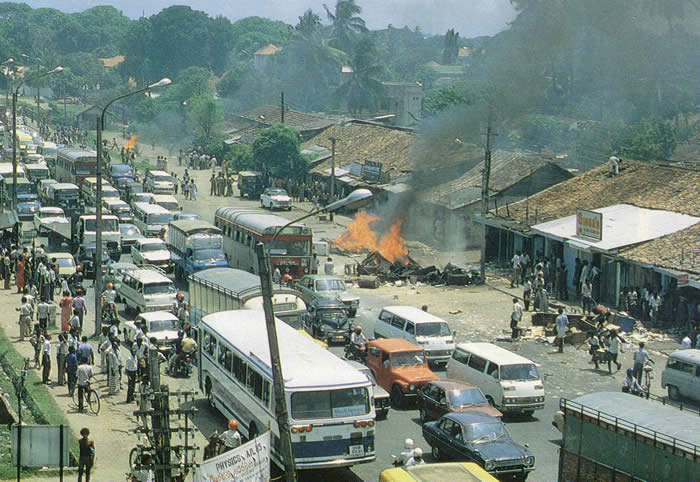By Rajan Hoole –
The justification for communal politics in defence of Tamil rights and an indication of the future direction it would take, are contained in S.J.V. Chelvanayakam’s deeply felt speech of 1948 on the Citizenship Bill:
“The Honourable Leader of the House told us that race is an important factor and that we must do everything to protect the race. What race did he mean? Is it the majority of this country? I say that this is the wrong approach to the whole question. Therefore, I say on behalf of those of us in the minority community who feel frightened by this trend of legislation that I protest against this type of legislation. As long as there are activities directed against communities and as long as these communities are minority communities, they must for their self-protection bind themselves in a communal way. The moment you remove the necessity for communal organisations, these communal organisations will cease to exit.”
There was also in the speech a sense of the Tamils having to look to India for their protection, which became a reality in July 1983:
“If the plantation labour in Ceylon did not even have the semblance of protection that it now has from the Indian Government, would they have even this measure of concession granted to them of becoming B-class citizens? Therefore, what is the use of saying that they ran away to India? That is their only piece of protection and you want to deprive them of that one piece of doubtful protection and place them completely at your mercy to do what you like with them.”
He admonished Prime Minister D.S. Senanayake who made a show of amity with Indian Prime Minister Nehru by flying with him in the same plane from New Delhi to London.
He pointed out that the duplicity over the Citizenship Bill had resulted in Ceylon ‘not being able to come to agreement with our nearest neighbour on an extremely important matter’. It is not any number of joint plane rides, Chelvanayakam told the Prime Minister that would bring amity with Nehru. Senanayake, he added, ‘must join the Honourable Prime Minister of India on a different plane, on the mental and moral plane in which the latter is flying through history.’
It is difficult not to be moved by Chelvanayakam. But on looking back it is also difficult to avoid the conclusion that the isolation and exclusive sense of victimhood Federal Party politics brought to the Tamils was unhealthy and ultimately tragic. There was little hint of recognition by him that the Left which was then powerful in the South took the same stand as the Federal Party on the key issues of the day – the Citizenship and Language issues. The possibility of an alliance was never taken seriously, if ever contemplated. After all, it was a time when perhaps most of the leading intellectuals in Jaffna, including school principals and former veterans of the Youth Congress, supported the Left rather than the Federal Party.
The Federal Party need not have lost electorally. Its main electoral rival was the Tamil Congress from which it had split off in 1948. It could have allowed the Left two or three seats in the North where they had a strong following and have used Left support to marginalise the Tamil Congress in the remaining seats. It would have helped the Tamil cause a great deal. There were probably many reasons why it did not happen. One of them is no doubt that the Colombo Tamil elite who had a strong influence in the Federal Party were UNP at heart.
This brings us to the class character of the Federal Party. Its leaders were Tamils whose professional and commercial interests were centred in Colombo. For over a century they had close links with the Sinhalese ruling class with similar westernised backgrounds. Thus, even as the Sinhalese elite drifted towards dangerous chauvinistic posturing, they also tried to soften its impact on the Tamils and even woo Tamil votes. This they did by giving private assurances to the Tamil leaders with whom they had close personal links – through for example University College and schools like St. Thomas’ College, Mt. Lavinia, where Bandaranaike and Chelvanayakam were contemporaries. This worked up to a point.
For example, when Bandaranaike started articulating Sinhala Only, the UNP, then led by Sir John Kotelawela, increasingly became shaky over its previous commitment to parity of the languages. At a reception at Kokkuvil Hindu College, Jaffna, in 1955, Sir John pledged that his party remained committed to language parity. Subsequently, while Sinhalese cabinet ministers remained tight- lipped on language policy, Tamils in the government went about reassuring the Tamils. Eventually the UNP adopted Sinhala Only in time for the 1956 elections where it lost badly to Bandaranaike’s SLFP and its allies in the MEP.
Knowing that he had played a dangerous game, it was Bandaranaike’s turn to reassure the Tamil elite through the Bandaranaike – Chelvanayakam Pact, which he then unilaterally abrogated. Tamil votes were also useful in the South and assurances of future remedy were kept up by both the UNP and the SLFP. The Tamil elite were thus divided into apologists for the government and Tamil nationalists. But both were closely linked to economic interests in Colombo and the Tamil elite were in practice made amenable to waiting in hope over promises made, rather than leading the Tamils in sustained protest. The class character of the Federal Party moreover made it a natural ally of the right-of-centre UNP, rather than the left- of-centre SLFP.
The violence of July1983 was the final slap- in-the-face to Colombo-based Tamil elite aspirations. It turned the majority of the uncommitted Colombo Tamil elite into nationalists, separatists, and later in foreign climes, the propaganda vanguard of the LTTE. Their earlier indifference to the rural Tamils was, from their safe vantages, transformed into an eagerness to turn the children of these rural Tamils into cannon-fodder.
*To be continued..
*From Rajan Hoole‘s “Sri Lanka: Arrogance of Power – Myth, Decadence and Murder”. Thanks to Rajan for giving us permission to republish. To read earlier parts click here



